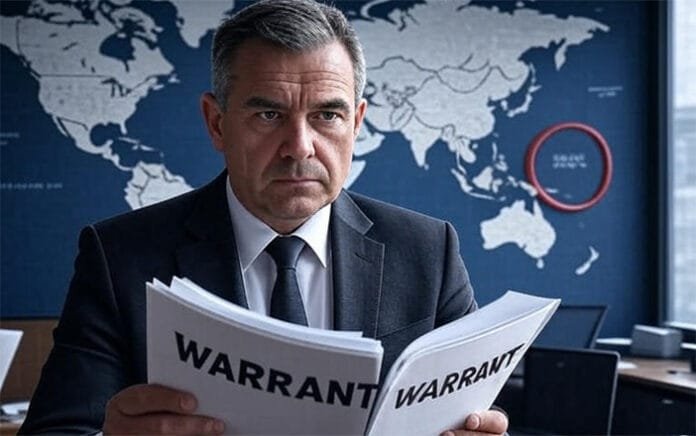In an unprecedented move, the International Criminal Court (ICC) has issued an arrest warrant against Taliban Supreme Leader Hibatullah Akhundzada and Afghanistan’s Supreme Court Chief Abdul Hakim Haqqani. The action marks a historic indictment of Taliban leadership for a systematic campaign of gender-based oppression and human rights violations committed under the regime since its resurgence in August 2021.
Severe Human Rights Abuses: A Legal Turning Point
The ICC’s warrant, requested by Chief Prosecutor Karim Khan, underscores the depth of suffering endured by Afghan women, girls, and gender minorities under Taliban rule. The charges include crimes against humanity, specifically targeting individuals on the basis of gender—a violation rarely prosecuted on such a global scale.
According to Khan, the Taliban regime under Akhundzada and Haqqani has launched a deliberate, centralized, and violent suppression campaign, stripping millions of Afghan citizens—especially women—of education, freedom of expression, movement, and religion.
What the ICC Charges Include
The charges detailed by the ICC include, but are not limited to:
Denial of access to education for girls above the age of 12
Banning women from employment across most sectors
Strict surveillance and harassment of women and girls
Forced disappearances and imprisonment for protestors and activists
Institutionalized denial of privacy, healthcare, and identity rights
Religious persecution veiled under moral policing
The prosecution’s evidence reportedly includes firsthand testimonies, secret video footage, UN reports, and NGO documentation, all pointing to a top-down enforcement strategy orchestrated by Akhundzada and executed judicially by Haqqani.
Collapse of Women’s Rights Under Taliban Rule
Since the Taliban’s return to power in 2021, Afghanistan has seen a sharp regression in women’s rights, reversing two decades of incremental progress.
Women have been barred from attending schools and universities, forbidden from appearing in public without a male guardian, and prohibited from working in national and international NGOs, which formed a critical employment sector for women.
UN Special Rapporteurs have condemned the situation as “gender apartheid”, a term previously used only in extreme legal contexts such as apartheid South Africa. The Taliban’s actions are now being categorized by legal experts as “gender persecution as a crime against humanity”, falling directly under Article 7 of the Rome Statute of the ICC.
Hibatullah Akhundzada: The Elusive Figurehead
Hibatullah Akhundzada, the Taliban’s top cleric and supreme commander, remains an invisible yet omnipotent authority. Believed to be operating from the Taliban stronghold in Kandahar, Akhundzada rarely appears in public, issuing most commands through decrees and speeches delivered via intermediaries.
Despite his low profile, the ICC claims to have “irrefutable evidence” that Akhundzada personally directed the implementation of discriminatory policies, particularly against women and gender minorities. His rulings, masked as religious edicts, dictated the Taliban’s legal framework which was enforced nationwide under threat of imprisonment or death.
Abdul Hakim Haqqani: The Judicial Enforcer
Known as the chief legal architect of the Taliban regime, Abdul Hakim Haqqani is accused of playing a central role in drafting and implementing the Taliban’s Sharia-based judicial system, which has enabled gender-specific oppression under the veil of Islamic law.
As Afghanistan’s Chief Justice, Haqqani issued judgments and punishments—including lashings and public executions—that violated multiple international conventions. His role in codifying the removal of women from public life made him a central figure in the ICC’s case.
Reaction from the International Community
The issuance of arrest warrants has drawn widespread international support, particularly from human rights organizations, UN bodies, and feminist coalitions across the globe.
Human Rights Watch applauded the action, calling it a “landmark moment for accountability in gender-based crimes.”
Amnesty International urged Interpol and regional governments to enforce the warrants actively.
The UN Human Rights Council welcomed the development but called for increased pressure on the Taliban to reverse its gender policies.
Western governments, particularly those of France, Germany, Canada, and the UK, have pledged legal cooperation and intelligence sharing to assist in the apprehension of Akhundzada and Haqqani.
Can the Taliban Leaders Be Brought to Justice?
Although Afghanistan is not a signatory to the Rome Statute, the ICC claims jurisdiction under the UN Security Council referral and previous rulings regarding crimes committed within the territory. However, the lack of cooperation from the Taliban and Pakistan’s ambiguous stance may complicate enforcement.
Still, the ICC maintains that international arrest warrants carry serious weight. Both Akhundzada and Haqqani now risk arrest if they travel abroad, effectively isolating them diplomatically and economically.
Moreover, the issuance of these warrants sends a clear signal to other Taliban leaders: that impunity will not protect perpetrators of systemic gender-based crimes.
Why This Warrant Matters: Beyond Symbolism
This legal action is not merely symbolic. The ICC’s move has the potential to:
Establish legal precedent for prosecuting gender apartheid
Shame and isolate oppressive regimes globally
Empower survivors and women-led movements in Afghanistan
Trigger sanctions and asset freezes under international law
It may also compel neighboring nations—especially those hosting Taliban leaders—to reconsider their diplomatic and strategic relationships with Afghanistan’s current regime.
Voices from Within Afghanistan
Despite threats and surveillance, women inside Afghanistan continue to resist. Underground schools, secret digital networks, and public protests—often led by young women—have become symbols of defiance.
One anonymous activist told a UN mission:
“We know the world is watching. The ICC warrant gives us hope that justice will not be denied forever.“
Afghan citizens, particularly survivors of Taliban brutality, view this development as a critical step toward international recognition of their suffering.
The Road Ahead for Gender Justice in Afghanistan
As the ICC advances its case, the world watches closely. While challenges remain—especially regarding enforcement—the symbolic and legal significance of these warrants cannot be overstated.
International travel bans are likely to increase
Diplomatic negotiations involving Afghanistan may now include conditions for women’s rights
Donor nations may resume aid on the basis of tangible reforms
In a nation where silence has long masked suffering, the ICC’s action amplifies the voices of millions who have been stripped of agency, identity, and basic humanity under a regime of terror.
Conclusion: A Watershed Moment for Global Justice
The ICC’s arrest warrants against Hibatullah Akhundzada and Abdul Hakim Haqqani mark a watershed moment in the global fight against gender oppression. For the first time in modern history, the world’s highest criminal court is treating gender-based persecution as an international crime on par with war crimes and ethnic cleansing.
Whether or not the Taliban leaders are ever brought to The Hague, this move fundamentally alters the global legal narrative around women’s rights in conflict zones. The path to justice may be long, but with this action, the ICC has taken a decisive first step.
















